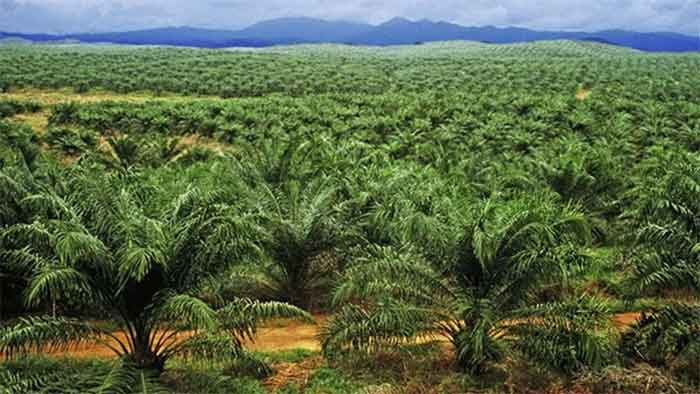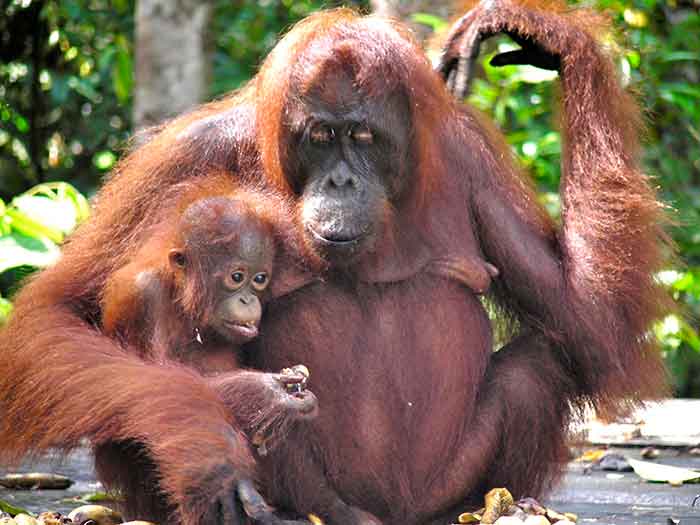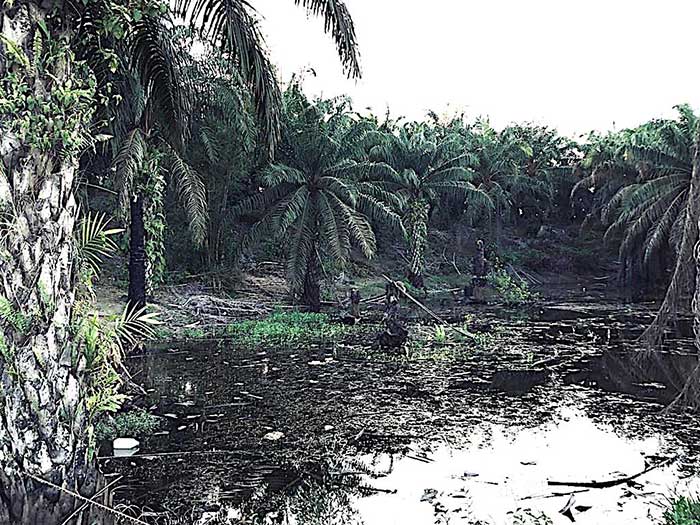
In recent years the import bill for edible oils has been increasing in a very big way and some big initiative was expected from the union government to reduce this. The direction of government plans was indicated earlier also but more formally the new plans for the edible oil sector were announced on August 18. These indicate that the government is all set for promoting a development path which will be dominated by palm oil.
India is today at an early stage of a crucial change in this sector and this needs to be widely discussed. Big changes once unleashed will be difficult and very costly to check later even if discovered then to be undesirable. We should learn from the very costly experiences of big changes introduced earlier in agriculture and forestry sectors.
In a nutshell, two questions in particular need to be explored carefully before the government goes ahead with its plans. Firstly what will be the impact of the new priorities on traditional oilseeds and the millions of farmers engaged in their cultivation? Secondly, what will be the impact on the regions, particularly the North-East region and the Andaman and Nicobar Islands, where the new priorities based on promoting palm oil tree are to be pursued in a big way?
The palm oil tree with its fruit and kernel is a non-traditional and recently promoted source of domestic edible oil supply in India. On the other hand, India has a very rich tradition of cultivating a diversity of oilseeds including groundnut, mustard, sesame, coconut and several other oilseeds. Cottonseed obtained as an important by-product of cotton is another important oilseed. Hilly and tribal areas have their own cultivation of special oilseed crops and trees highly valued by local communities. Many oilseed crops and trees also yield highly nutritious green vegetables, dry fruits, nuts, slices, cold drinks which are much relished. Some traditional oils in pure form are not just a cooking medium but in addition have important medicinal value, although this medicinal value is best retained only if there is cottage scale processing. In fact some oilseeds are valued more for their medicinal value. Oilcakes obtained as by-products from the processing of all the main traditional oilseeds constitute the most important concentrate feed for dairy animals and farm animals.
If the recently announced development path focusing on palm oil and non-traditional oilseeds succeeds well , then after some years we will have a situation in which the lower-priced palm oil will dominate the local market more and more. Due to its lower price, it will creae a situation in which millions of farmers who grow traditional oilseeds will come under pressure as they will not be able to get a remunerative price for their crop.This is already happening due to high imports of palm oil and the big use of cheaper oils in hydrogenated oil or vanaspati , but when the domestic production is dominated much more by palm oil then this trend will be even more durable.
At the same time, due to concentration of government efforts and funds for this sector now being on developing palm oil plantations, lesser funds are likely to be available for helping traditional oilseed farmers. Hence cultivation of traditional oilseeds is likely to decline. As traditional oilseeds occupy a very important place in the overall nutrition situation of India, nutrition will also be harmed.
What about the farmers who are supposed to benefit from the rapidly increasing emphasis on palm oil? The experience of farmers who took to growing palm oil fruit trees in recent years in states like Andhra Pradesh has at best been a mixed one and there have been reports also of some farmers giving it up after initially taking to it enthusiastically. In future the government has planned biggest expansion in the North-East region as well as Andaman and Nicobar Islands, very sensitive regions in ecological and anthropological terms.
Worldwide experiences reveal problems relating to use of excessive water and chemical fertilizers in palm oil plantations. Monoculture plantations of exotic trees spread over wide areas are more prone to pest attacks and hence a lot of pesticides have been used. All this leads to deterioration and erosion of soil.
The government has assured remunerative price and other help , and if this promise is kept and various precautions taken, then for some time some palm oil fruit farmers may be able to earn well , but high cost path can trouble them too. We also need to look at what they were cultivating earlier, and what is the loss in terms of staple food crops and food sovereignty and security?
In addition, in conditions of growing soil erosion, water stress and pollution, what will be the impact on other farmers of the same area who are not growing palm oil fruit? They will surely get affected adversely in the new situation.
Processors of palm oil fruit tend to be very big units with heavy machines which , once installed, need high quantities of fruit to be fed to them to increase profits. Their appetite is fed not only by edible oil demand, but also by the cosmetics, detergents and a host of other industries which use palm oil. For the junk food industry the cheaper palm oil is a highly favored oil.
So if there is a pressure to extend palm oil plantations to forest land, this will harm the wider communities depending on forests for various needs, apart from harming ecology and biodiversity. Real horror stories of loss of forests and biodiversity related to large-scale extension of palm oil plantations have been reported in the past from countries like Indonesia, as also the resulting discontent among indigenous communities and others living near forests. This is something that Indian policy makers hastening to introduce palm oil will do well to heed.
The government has taken this decision to spread palm oil fruit trees on a large scale in such sensitive areas as the North-Eastern states and the Andaman and Nicobar Islands despite clear warnings by the nation’s top forestry experts against introducing such invasive exotic species in bio-diversity rich areas. Even before this there have been several reports of grave harm caused by introduction of exotic invasive species in such ecologically sensitive regions like Western Himalayas and Shivaliks, Bundelkhand and the Banni grasslands in Kutch.
In 2002 due to sound reasons a ban on planting exotic oil palm oil tree in the Andaman and Nicobar Islands was imposed. However when powerful pressures resulted in nudges and pushes for removing this ban, a new debate ensued in the course of which in November 2019 the Supreme Court sought the opinion of the Indian Council of Forestry Research and Education (IFCRE) . In its report submitted in January 2020 the ICFRE stated that the introduction of oil palm tree in biodiversity rich areas including grasslands without any detailed studies on its ecological impact should be avoided.
If present trends continue, then Patanjali cum Ruchi Soya will emerge as the biggest edible oil player and palm oil player in India with a very strong market share. This company with Baba Ramdev as its leading star is known to enjoy strong government support and already has a head start in new palm oil led growth of the sector. However there have been several controversial aspects also of this company which till recently was heavily debt-ridden but very recently has prospered in a big way. Looking at future prospects in the broader perspective of national interests including nutrition interests, there may be problems in edible oils sector being dominated by palm oil and this in turn being dominated by controversial business units.
When seen from the perspective of oilseed and oil fruit farmers, the prospects appear to be far less rosier than the bright side shown by the government in its announcements relating to palm oil based quest for reducing imports. In particular the prospects of millions of traditional oilseed farmers have become much more uncertain and precarious in the new growth path prepared by the government.
If the government is serious about sustainable progress in oilseed production based on satisfying livelihoods of farmers, it should concentrate more attention on traditional oilseeds regarding which farmers have clearly established skills and knowledge and suitablity of soil and related conditions is also assured. In addition consumer preference for edible oil and various very useful by-products is also assured. Palm oil tree should remain confined for the time being to a much more limited area where too it should be grown not as a monoculture plantation but in small patches with other trees and crops, while experiments of its sustainable spread which does not extract much ecological and biodiversity costs can continue in a small way for some years, taking care to check any invasive spread. Much higher funds are needed not for this but instead for supporting cultivators of traditional oilseeds in terms of assuring remunerative price and in various other ways, while at the same time other problems relating to traditional oilseeds should also be sorted out in a framework of sustainability. Above all, this is a time for care and caution, for unbiased debate free from the pressure of narrow interests, so that the most suitable path for the progress of edible oils sector can be identified and promoted and at the same time undesirable and harmful changes can be avoided.
Bharat Dogra is a journalist and author. His recent books include Man Over Machine ( Gandhian Ideas For Our Times) and Protecting Earth for Children.














































